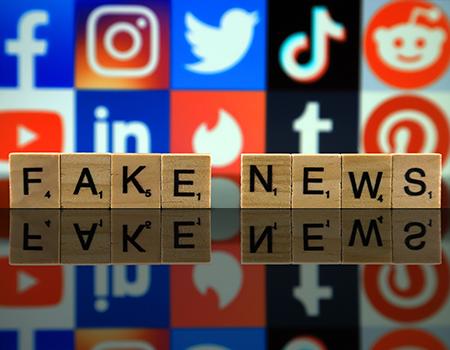The Disinformation Virus

All the lies will not disappear as the pandemic retreats, but it may be an opportunity for the Slovak state to give these threats the attention they deserve.
The COVID-19 pandemic has taught us many things, both on the personal and societal levels. In addition to sewing masks and reverting back from shopping centres to nature, we have learned that, in times of crisis, leadership and the willingness to make unpopular decisions based on data are keys to protecting health and lives. After years of underappreciation, the ridicule of experts, and Facebook pundits dominating everything, it turns out that true expertise, knowledge, and science are indispensable for our survival.
On the other hand, we have seen in a full measure how dangerous and destructive disinformation, lies, and manipulation spread on social networks or through chain emails and various obscure websites. Such falsehoods have run the gamut from recipes for “guaranteed” coronavirus cures consisting of drinking hot water or disinfectant to puny fabrications that the virus is a secret weapon of the Pentagon or that the whole pandemic is a scam conceived by elites to track people. Unfortunately, such nonsense can also have real consequences, if ineffective procedures are adopted or quarantine resisted for unsubstantiated reasons.
We also see very clearly that states such as Russia are shamelessly exploiting the pandemic to try to weaken, pollute, and subvert the European Union. Since January, the European External Action Service (EEAS) has documented more than 300 examples of disinformation relating to the pandemic disseminated by media directly financed by or closely connected to the Russian authorities. It is no coincidence that the same news and stories about how the EU has not helped countries in need and is actually falling apart, were widely shared in Slovakia by well-known disseminators of hoaxes, disinformation, and conspiracies. Disappearing in the information overload is the fact the EU does not have its own supplies of medical equipment – and hence individual member states need to be responsible themselves for such assistance – and the news that the EU has released hundreds of billions of euros to revive the economy.
For those of us who have been addressing information security for years, sounding the alarm, and proposing solutions, this crisis has fully demonstrated how undervalued and insufficient are the existing capacities of the Slovak state authorities in strategic communication. It is therefore commendable that, following a half-solution in the form of a government-approved National Security Strategy that the previous parliament did not accept, the new government’s policy statement clearly outlines the dangers posed by hybrid threats and the spread of disinformation.
What I call for – based on the first comprehensive analysis of hybrid threats in Slovakia, which we at GLOBSEC conducted in 2018 – is the creation of a central coordination body and other tools to strengthen the state's capacity to combat hybrid threats and disinformation. For the first time, these measures are included in the government program. I consider it equally important to recognize the importance and role of non-governmental organizations in this area, which can be partners for the government and effectively communicate and educate, and be wherever state institutions do not have the reach or capacity. Of course, the new government faces a number of potential pitfalls in meeting its ambitious goals – from coalition disputes to budget constraints to the geopolitical implications of the pandemic. Nevertheless, it is very important that the policy statement clearly outlines these security challenges.
Unfortunately, disinformation, lies, and manipulation will not disappear as the pandemic retreats, but it may be an opportunity for the state to give these threats the attention they deserve. They attack our ability to think, evaluate facts and context and make decisions. And there will always be someone who wants to use them for their own nefarious purposes. Not only do we need a vaccine against the coronavirus, but we also need to be vaccinated against the disinformation virus.
This article originally appeared in the Slovak daily Dennik N. Reprinted with permission. Translated by Jeremy Druker.
The article was sourced from tol.org, where it was published on 22 April 2020.

Former Senior Advisor, Democracy & Resilience